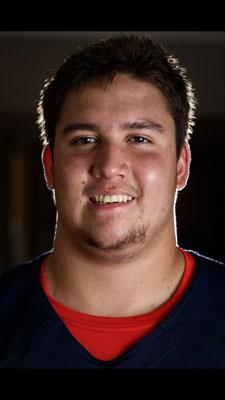An annual rite of summer, the North Carolina Coaches' Association’s East-West All-Star games, will be held again this month in Greensboro. The games were founded in 1949 by North Carolina High School Athletic Association Hall of Fame coach Bob Jamieson of Grimsley High School in Greensboro.
Currently five games are played each summer, boys’ and girls’ basketball, boys’ and girls’ soccer and football. The games are held in conjunction with the annual North Carolina Coaches’ Association clinic, which takes place during the same week at the Greensboro Coliseum Complex. This year’s games and clinic are scheduled July 17-20.
The basketball games are Monday, July 17, at 6:30 p.m. for girls and 8:30 p.m. for boys in the Greensboro Coliseum.
Soccer will be held Tuesday, July 18, at MacPherson Stadium, home of the professional Carolina Dynamo team. Girls are at 6:30 p.m., boys at 8:30.
Football will be played Wednesday, July 18, at 8 p.m. at Grimsley High School’s Jamieson Stadium at Joe Franks Field.
Here are capsule profiles of Cumberland County coaches and athletes scheduled to take part in this year’s East-West games. This list was compiled as of Friday, June 30, so any additions or drop-offs that took place after that date are not included.
 Football
Football
Anderson was a twotime All-Cape Fear Valley 3-A Conference selection for Terry Sanford. This past season he was first-team AllCape Fear Valley and was also named to The Fayetteville Observer’s All-Cape Fear region team. He served as team captain for the Bulldogs.
Terry Sanford finished 9-4 overall and 4-2 in the Cape Fear Valley, sharing third place in the conference standings with Southern Lee. Terry Sanford advanced to the North Carolina High School Athletic Association 3-AA playoffs where it defeated Northwood 44-21 in the opening round but lost to Cape Fear Valley rival and league co-champion Lee County 35-3 in the second round.
PHOTO: Nick Anderson, Terry Sanford. Offensive tackle: 6'3", 292
 Hines was twice selected to the All-Mid-South 4-A Conference team and made The Fayetteville Observer All-Cape Fear region team this past season. Hines was a key blocker for back-to-back 2,000-yard rushers for the Falcons. His blocks helped to account for over 4,500 yards of total offense. He recorded 14 pancake blocks in his senior season.
Hines was twice selected to the All-Mid-South 4-A Conference team and made The Fayetteville Observer All-Cape Fear region team this past season. Hines was a key blocker for back-to-back 2,000-yard rushers for the Falcons. His blocks helped to account for over 4,500 yards of total offense. He recorded 14 pancake blocks in his senior season.
The Falcons finished in second place in the Mid-South Conference last year, 9-3 overall and 5-1 conference, their only league loss coming to regular-season and Eastern 4-A Champion Cape Fear. Seventy-First was eliminated in the first round of the state 4-A playoffs by Southeast Raleigh, 28-14.
PHOTO: Rashaun Hines, Seventy First. Offensive line: 6'0", 285
 Girls Basketball
Girls Basketball
Griffin was a star for Smith both on the court and in the classroom. In her final season at Smith she led her team to a 19-7 overall record and a 12-0 mark in the MidSouth 4-A Conference.
She averaged 13.6 points per game while hitting 67 percent of her free throws. She pulled down 4.1 rebounds and had 1.6 steals and 1.9 assists per game. She led Smith to victory in the Cumberland County Holiday Classic and was named Most Valuable Player. She was also first team All-Mid-South. Griffin was an Up & Coming Weekly scholar athlete this year. She was ranked in the top 12 of her graduating class and compiled a 4.3 grade-point average.
She will attend Winston-Salem State University this fall and major in exercise science. She graduated summa cum laude and is an North Carolina Academic Scholar.
PHOTO: Rayvin Griffin, E.E. Smith Guard: 5'9"
 Henderson had an outstanding senior season for the Tigers, earning Mid-South 4-A Conference Player of the Year honors. She made The Fayetteville Observer’s All-Cape Fear region team and was North Carolina Basketball Coaches Association first team All-District.
Henderson had an outstanding senior season for the Tigers, earning Mid-South 4-A Conference Player of the Year honors. She made The Fayetteville Observer’s All-Cape Fear region team and was North Carolina Basketball Coaches Association first team All-District.
She made the Carolinas All-Star team and was AllConference in volleyball. On the basketball court, she averaged 16.0 points per game, 14.0 rebounds and five blocks. She finished her career with over 1,000 points. She holds school records for blocks in a season, blocks in a game and rebounds in a game. She had three career triple doubles (points, rebounds and blocks).
South View was second in the Mid-South Conference last season, 17-10 overall and 9-3 in the league. The Tigers lost to Knightdale 49-44 in the first round of the 4-A playoffs. Off the court Henderson served as senior class president. Originally committed to the University of Texas-El Paso, Henderson will attend Wichita State this fall, getting a release from UTEP after the coach there was hired by Wichita State.
PHOTO: Asia Henderson, South View. Forward: 6'2"
 McArthur was a star high school player at her alma mater, South View, from 1995-99 where she played under veteran head coach Brent Barker. She went on to college stardom at Fayetteville State where she holds school records for steals and assists. She returned to South View as an assistant coach under Barker from 1999-2009, helping guide the Tigers to the state 4-A championship in 2007. In 2009, she became head girls’ coach at Jack Britt. In 2015, she led her team to the Robeson County ShootOut championship. She was also named The Fayetteville Observer’s All-Cape Fear Region coach of the year and the MidSouth 4-A Conference coach of the year the same season. In 2014, she led her team to the Cumberland County Holiday Classic championship, a first in school history. This past season Jack Britt was 15-9 overall and 7-5 in Mid-South 4-A Conference play, finishing third in the league standings. Britt lost to Wilmington Hoggard 48-32 in the first round of the state 4-A playoffs.
McArthur was a star high school player at her alma mater, South View, from 1995-99 where she played under veteran head coach Brent Barker. She went on to college stardom at Fayetteville State where she holds school records for steals and assists. She returned to South View as an assistant coach under Barker from 1999-2009, helping guide the Tigers to the state 4-A championship in 2007. In 2009, she became head girls’ coach at Jack Britt. In 2015, she led her team to the Robeson County ShootOut championship. She was also named The Fayetteville Observer’s All-Cape Fear Region coach of the year and the MidSouth 4-A Conference coach of the year the same season. In 2014, she led her team to the Cumberland County Holiday Classic championship, a first in school history. This past season Jack Britt was 15-9 overall and 7-5 in Mid-South 4-A Conference play, finishing third in the league standings. Britt lost to Wilmington Hoggard 48-32 in the first round of the state 4-A playoffs.
PHOTO: Nattlie McArthur, Jack Britt Head Coach East girls' basketball
 How to resolve AdBlock issue?
How to resolve AdBlock issue?  How to resolve AdBlock issue?
How to resolve AdBlock issue?  How to resolve AdBlock issue?
How to resolve AdBlock issue?  How to resolve AdBlock issue?
How to resolve AdBlock issue?  How to resolve AdBlock issue?
How to resolve AdBlock issue?  How to resolve AdBlock issue?
How to resolve AdBlock issue? 





